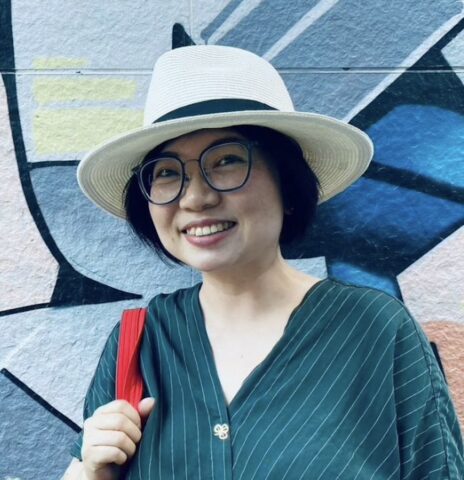A new journalism class covering emerging trends in technologies — from blockchain to peer-to-peer networks — will be made possible by a $100,000 donation from Mask Network Academy founded by Suji Yan. The “Future Technologies and Decentralized Social” class will be offered at Berkeley Journalism in fall 2025.
“We are jumping into the future,” said Nan Wu (’08), a Berkeley Journalism alum and veteran reporter, who spearheaded the gift to Berkeley Journalism. Wu runs the Mask Network Academy, a non-profit arm of Mask Network, that is a liaison to universities and journalism programs. Mask promotes use of decentralized networks for things like social media or payment platforms.

Suji Yan
“We still don’t have journalists who really understand and can tap into the game-changers with a basic knowledge of blockchain technology and do interesting and solid reporting,” Wu said, explaining the importance of the class and the rationale behind the gift.
Associate Dean Jeremy Rue, who leads the school’s multimedia program, said the class will equip students with key skills and background to do more nuanced reporting on technology and investigate how emerging technologies reshape society.
At a time of vast acceleration in technology with AI, he said the class will seek to educate students about trends and close a gap in knowledge between journalists and technologists.
“We are so grateful to have this support to bring our school to the cutting-edge of innovation,” said Rue. “This new class will explore burgeoning areas of decentralized networks and media that will equip students with a foundation that, over time, will shape the public’s understanding of these topics.”
Wu is a Berkeley Journalism alum who covered tech for The Wall Street Journal and South China Morning Post. In 2016, she founded a media startup “All Tech Asia,” which created journalism and business networks across China, South Korea, India and the United States. She closed shop in 2021 during COVID-19 and moved to Singapore to work with visionary tech leaders interested in social change. That’s when she met tech innovator and Mask founder Suji Yan.
“I met him and was surprised,” Wu said. “I was taken aback by this 26-year-old who talked like he was in his forties with a vision. He talked about his beliefs for an open and free internet with pure passion.”
Yan’s story is classic tech startup lore. He bought Bitcoin when he was a teenager after reading “Cypherpunk” in Shanghai. He studied computer engineering at University of Illinois Urbana-Champaign before dropping out at the age of 20 in 2017 to found Mask Network. In 2019, the Mask team successfully built a bridge from mainstream social networks to Web3 via its “Mask Extension.” (Web3 refers to a new stage of the internet driven by cryptocurrency-related blockchain technology.)
In 2020 Yan founded the Bonfire Union, a venture capitalist initiative to fuel funding of “blockchain infrastructure and decentralized social networks” — social networks that use blockchain technology and are not owned by anyone.
In recent years, a number of decentralized social networks, such as Mastodon and Bluesky, have emerged. These networks enable users to access each other and interact through a “fediverse” or federated social network mechanism. They can set their own codes of conduct and moderation policies, charge money or not.

Nan Wu (’08)
The “Mask Extension,” enabled Twitter users to have secure and decentralized social messaging through use of secure blockchain technology.
In an interview with Blockcast, Yan said, “What I want to say today is that an open network represents an open society. To complete a harmonious society, an open society, and even a community with a shared future for mankind, an open network is indispensable.”
In addition to advancing technology, Yan was interested in educating people about emerging technologies and improving storytelling about Web3.
To this end, he established the “Drop Out Grant” (the Mask Grant) to fund students who wanted to launch startups. He invested in “crypto media” that covered blockchain technology and the people building blockchains. And he founded the Mask Network Academy in 2023, the nonprofit that funds the collaboration with Berkeley Journalism and other blockchain research programs to improve Web3 education, including reporting. (Web3 refers a new stage of the internet driven by blockchain technology.)
Rue says the class intends to prepare a new generation of journalists covering emerging tech.
“It is incumbent that our grad students learn about the innovations that will invariably impact our industry,” Rue said.
Wu said she and Yan knew Berkeley would be a good campus to pioneer a class on covering tech, given its location in proximity to Silicon Valley, Berkeley’s campus-wide tech expertise and the excellence of the journalism school itself.
“Berkeley really is the perfect place to build something to introduce to journalism students and introduce to the public to the decentralized social,” said Wu. “And to show how it changes the media landscape.”



